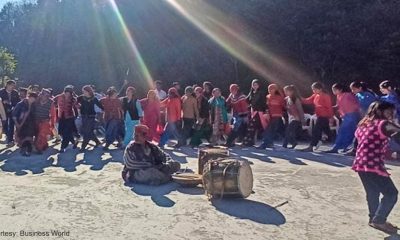Nation
23rd GST Council Meeting: Detailed list of 178 items that’ll be cheaper now
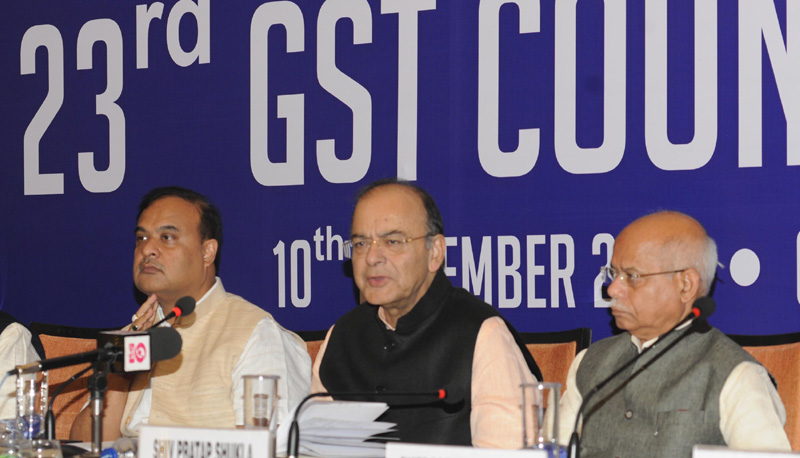
However, for luxury, sin, whitegoods, paints, cement, washing machine, air conditioners etc. will still have to follow 28 per cent slab.
New Delhi: The GST Council on Friday cut tax rates on about 173 consumer items. Now, only 50 items remain under the 28 percent slab.
The decision was taken at the 23rd meeting of the GST Council held at Guwahati on November 10, 2017.
While addressing a press conference after the meeting, the Finance Minister Arun Jately informed that earlier, 227 items lied in the 28 per cent slab. Now all types of chewing gum, chocolates, preparation for women cosmetics, shaving and after-shave items, deodorants, washing powder detergent, granite, marble, fire extinguisher, watches, blade, stove, and mattress have been put in the 18 per cent category.
Scroll Down to Read Detailed List of Items and Their Respective Rates
However, for luxury, sin, whitegoods, paints, cement, washing machine, air conditioners etc. will still have to follow 28 per cent slab.
Now, eating out will also become cheaper as rate for restaurant, who don’t claim tax credit (including ac/non ac), was decided at flat 5%.
The rate of outdoor catering and for hotels below Rs 7,500 room was fixed at 18% and 5% respectively
GST rate on fly ash and fly ash brick was slashed from 18 to 5 per cent and 18 to12 percent on pasta, jute and cotton handbags.
The threshold for composition scheme was hiked to Rs 1.5 crore.
As per the details given in the press conference, during last three the implementation of GST caused loss of around Rs 60,000 crore to the Centre and Rs 30,000 crore to states.
Further, it was decided in the meeting that all taxpayers would have file return in FORM GSTR-3B along with payment of tax by 20th of the succeeding month till March, 2018.
October 2017 onwards, the amount of late fee payable by a taxpayer whose tax liability for that month was ‘NIL’will be Rs. 20/- per day instead of Rs. 200/- per day.
In an earlier meeting of the GST Council, it was decided to exempt those service providers whose annual aggregate turnover is less than Rs. 20 lakhs (Rs. 10 lakhs in special category states except J & K) from obtaining registration even if they are making inter-State taxable supplies of services.
As a further measure, it has been decided to exempt such suppliers providing services through an e-commerce platform from obtaining compulsory registration provided their aggregate turnover does not exceed twenty lakh rupees.
All service providers, whether supplying intra-State, inter-State or through e-commerce operator, will be exempt from obtaining GST registration, provided their aggregate turnover does not exceed Rs. 20 lakhs (Rs. 10 lakhs in special category States except J & K).
Goods on which the Council has recommended reduction in GST rate from 28% to 18% include:
- Wire, cables, insulated conductors, electrical insulators, electrical plugs, switches, sockets, fuses, relays, electrical connectors
- Electrical boards, panels, consoles, cabinets etc for electric control or distribution
- Particle/fibre boards and ply wood. Article of wood, wooden frame, paving block
- Furniture, mattress, bedding and similar furnishing
- Trunk, suitcase, vanity cases, brief cases, travelling bags and other hand bags, cases
- Detergents, washing and cleaning preparations
- Liquid or cream for washing the skin
- Shampoos; Hair cream, Hair dyes (natural, herbal or synthetic) and similar other goods; henna powder or paste, not mixed with any other ingredient;
- Pre-shave, shaving or after-shave preparations, personal deodorants, bath preparations, perfumery, cosmetic or toilet preparations, room deodorisers
- Perfumes and toilet waters
- Beauty or make-up preparations
- Fans, pumps, compressors
- Lamp and light fitting
- Primary cell and primary batteries
- Sanitary ware and parts thereof of all kind
- Articles of plastic, floor covering, baths, shower, sinks, washbasins, seats, sanitary ware of plastic
- Slabs of marbles and granite
- Goods of marble and granite such as tiles
- Ceramic tiles of all kinds
- Miscellaneous articles such as vacuum flasks, lighters,
- Wrist watches, clocks, watch movement, watch cases, straps, parts
- Article of apparel & clothing accessories of leather, guts, furskin, artificial fur and other articles such as saddlery and harness for any animal
- Articles of cutlery, stoves, cookers and similar non electric domestic appliances
- Razor and razor blades
- Multi-functional printers, cartridges
- Office or desk equipment
- Door, windows and frames of aluminium.
- Articles of plaster such as board, sheet,
- Articles of cement or concrete or stone and artificial stone,
- Articles of asphalt or slate,
- Articles of mica
- Ceramic flooring blocks, pipes, conduit, pipe fitting
- Wall paper and wall covering
- Glass of all kinds and articles thereof such as mirror, safety glass, sheets, glassware
- Electrical, electronic weighing machinery
- Fire extinguishers and fire extinguishing charge
- Fork lifts, lifting and handling equipment,
- Bull dozers, excavators, loaders, road rollers,
- Earth moving and levelling machinery,
- Escalators,
- Cooling towers, pressure vessels, reactors
- Crankshaft for sewing machine, tailor’s dummies, bearing housings, gears and gearing; ball or roller screws; gaskets
- Electrical apparatus for radio and television broadcasting
- Sound recording or reproducing apparatus
- Signalling, safety or traffic control equipment for transports
- Physical exercise equipment, festival and carnival equipment, swings, shooting galleries, roundabouts, gymnastic and athletic equipment
- All musical instruments and their parts
- Artificial flowers, foliage and artificial fruits
- Explosive, anti-knocking preparation, fireworks
- Cocoa butter, fat, oil powder,
- Extract, essence ad concentrates of coffee, miscellaneous food preparations
- Chocolates, Chewing gum / bubble gum
- Malt extract and food preparations of flour, groats, meal, starch or malt extract
- Waffles and wafers coated with chocolate or containing chocolate
- Rubber tubes and miscellaneous articles of rubber
- Goggles, binoculars, telescope,
- Cinematographic cameras and projectors, image projector,
- Microscope, specified laboratory equipment, specified scientific equipment such as for meteorology, hydrology, oceanography, geology
- Solvent, thinners, hydraulic fluids, anti-freezing preparation
b) Goods on which the Council has recommended reduction in GST rate from 28% to 12% are:
- Wet grinders consisting of stone as grinder
- Tanks and other armoured fighting vehicles
Other changes/rationalisation of GST rates on goods:
- a) 18% to 12%
- Condensed milk
- Refined sugar and sugar cubes
- Pasta
- Curry paste, mayonnaise and salad dressings, mixed condiments and mixed seasoning
- Diabetic food
- Medicinal grade oxygen
- Printing ink
- Hand bags and shopping bags of jute and cotton
- Hats (knitted or crocheted)
- Parts of specified agricultural, horticultural, forestry, harvesting or threshing machinery
- Specified parts of sewing machine
- Spectacles frames
- Furniture wholly made of bamboo or cane
b) 18% to 5%
- Puffed rice chikki, peanut chikki, sesame chikki, revdi, tilrevdi, khaza, kazuali, groundnut sweets gatta, kuliya
- Flour of potatoes put up in unit container bearing a brand name
- Chutney powder
- Fly ash
- Sulphur recovered in refining of crude
- Fly ash aggregate with 90% or more fly ash content
c) 12% to 5%
- Desiccated coconut
- Narrow woven fabric including cotton newar [with no refund of unutilised input tax credit]
- Idli, dosa batter
- Finished leather, chamois and composition leather
- Coir cordage and ropes, jute twine, coir products
- Fishing net and fishing hooks
- Worn clothing
- Fly ash brick
d) 5% to nil
- Guar meal
- Hop cone (other than grounded, powdered or in pellet form)
- Certain dried vegetables such as sweet potatoes, maniac
- Unworked coconut shell
- Fish frozen or dried (not put up in unit container bearing a brand name)
- Khandsari sugar
e) Miscellaneous
- GST rates on aircraft engines from 28%/18% to 5%, aircraft tyres from 28% to 5% and aircraft seats from 28% to 5%.
- GST rate on bangles of lac/shellac from 3% GST rate to Nil.
Nation
Most Covid Restrictions to be Lifted From March 31, Mask and Hand Hygiene to Continue
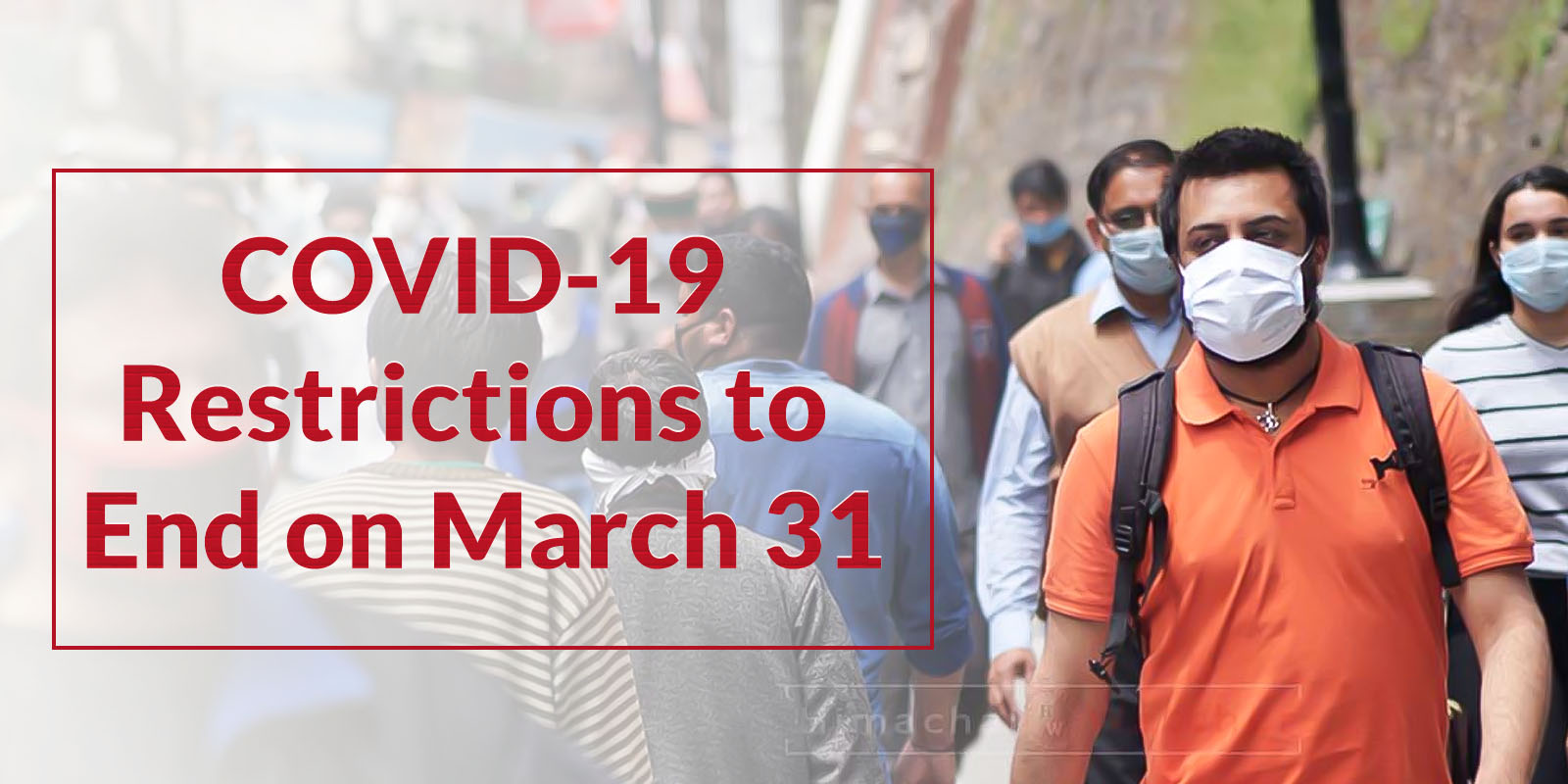
New Delhi-The Centre has issued a notification to the States informing that the provisions of the Disaster Management (DM) Act, 2005 will not be invoked in the country after March 31. The Union Health Ministry said that the use of face masks and following hand hygiene will continue.
It implies that most of the Covid-related rules and restrictions would end.
Union Home Secretary Ajay Bhalla issued the notification which said that the decision was taken following the overall improvement in the situation and the preparedness of the government in dealing with the COVID-19 pandemic.
However, local authorities and State police can still invoke fines and criminal cases against persons violating COVID-19 norms under the Indian Penal Code (IPC), a senior government official said.
The DM Act was invoked on March 24, 2020, due to the pandemic
“Over the last seven weeks or so there has been a steep decline in the number of cases. The total caseload in the country stands at 23,913 only and the daily positivity rate has declined to 0.28%. It is also worth mentioning that with the combined efforts, a total of 181.56 Cr vaccine doses have been administered,” the notification said.
“I would like to mention that in view of the nature of the disease, we still need to remain watchful of the situation. Wherever any surge in the number of cases is observed, the States/UTs may consider taking prompt and proactive action at a local level, as advised by MoHFW (Health Ministry) from time to time,” the notification said.
The Indian government had issued various guidelines and measures for the first time on March 24, 2020, under the Disaster Management Act to curb the COVID-19 situation in the country, which have been modified several times thereafter.
India currently has 23,087 active COVID-19 cases and recorded 1,778 new cases and 62 deaths in the last 24 hours. The daily positivity rate has also declined to 0.28%.
Nation
Vaccination of 15-18 Year Age Group in India from Jan 3, Precautionary Dose for Frontline Workers from Jan 10
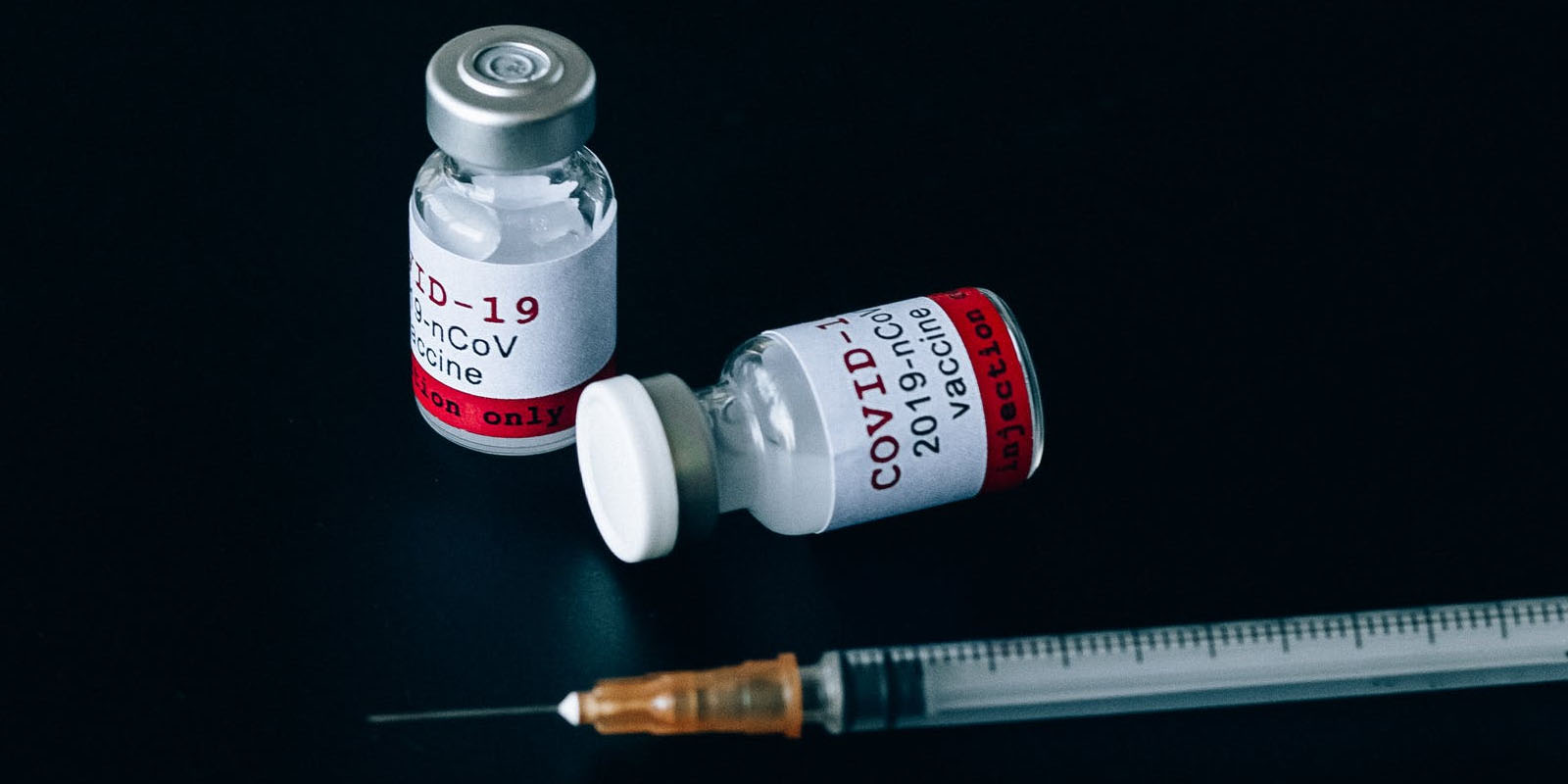
New Delhi-India will begin vaccination of the children in the age group of 15-18 years from 3rd January 2022. The move is likely to aid in education normalization in schools. The announcement was made by Prime Minister Narender Modi on Saturday evening. He also announced a precaution dose (booster dose) for healthcare and frontline workers from 10th January 2022, Monday.
In India, this has been called the ‘precaution dose’ not booster dose. An option of precaution dose will be available for senior citizens above 60 years of age with co-morbidities on the advice of their doctors from 10th January 2022.
Referring to the Omicron infections In India, the Prime Minister requested the people not to panic and to follow precautions such as masks and washing hands repeatedly.
According to the Government, the vaccination campaign started on 16th January this year has crossed the mark of 141 crore doses, and 61 percent of the adult population of the country has received both the vaccines and 90 percent of adults have received one dose.
According to the Government statistics, currently, the country has 18 lakh isolation beds, 5 lakh oxygen supported beds, 1 lakh 40 thousand ICU beds, 90 thousand ICU and Non-ICU beds especially for children, more than 3 thousand PSA oxygen plants, 4 lakh oxygen cylinders and support to states is being provided for buffer doses and testing.
The Prime Minister assured that soon the country will develop a nasal vaccine and the world’s first DNA vaccine.
Photo by Nataliya Vaitkevich from Pexels
Nation
Three Farm Laws to be Withdrawn, Announces PM Modi Ahead of Elections in Punjab and UP
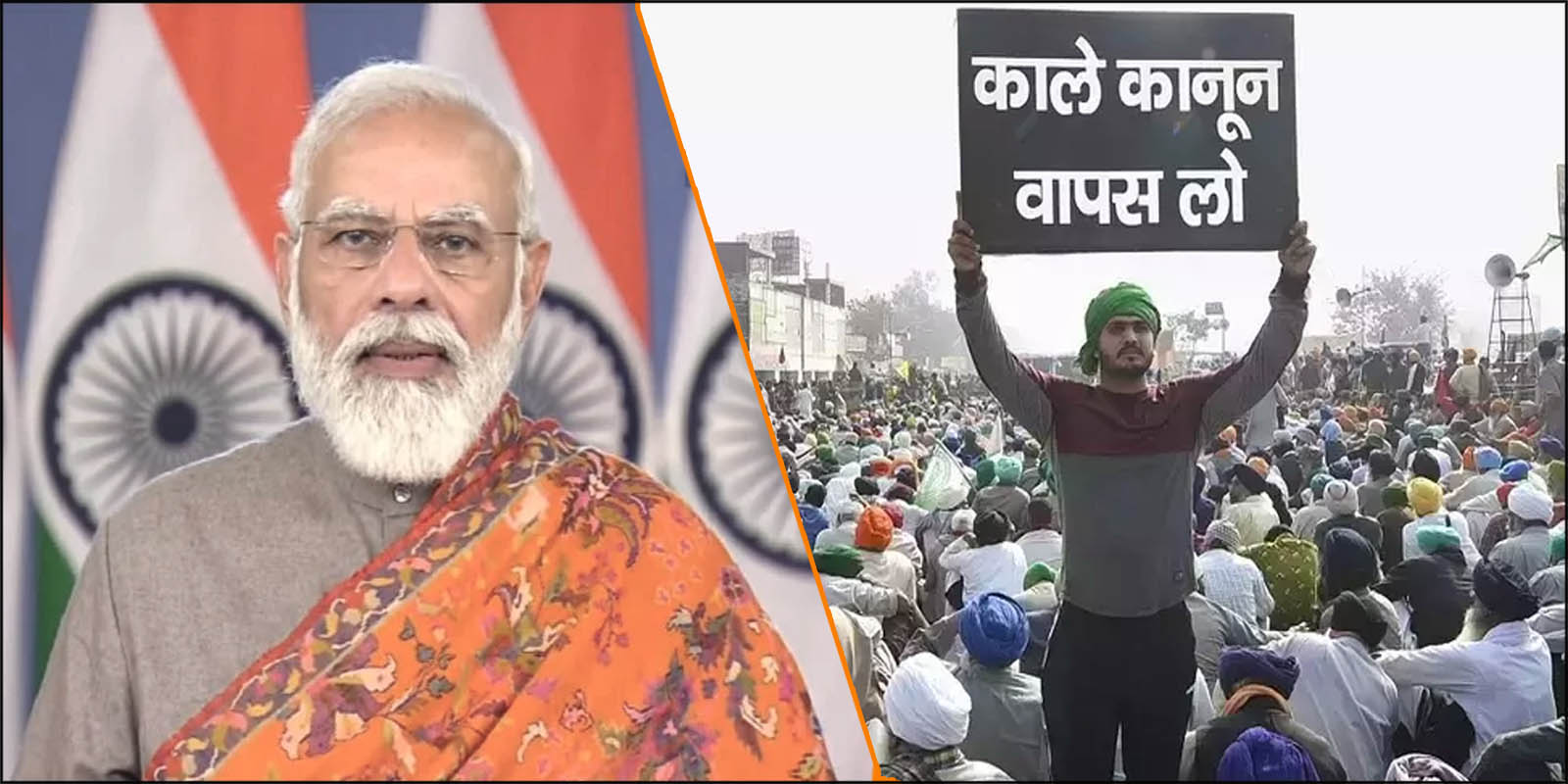
New Delhi: Ahead of assembly polls in Punjab and Uttar Pradesh, Prime Minister Narender Modi on Friday retreated from his stand on the three contentious farm laws and announced that the government will repeal three laws. He requested the protesting farmers to end the protest that has been going on for over a year now.
He said the three laws would be repealed in the winter session of Parliament starting later this month. He also said that though the laws were in the interest of the farmers, his government failed to convince them.
आज मैं आपको, पूरे देश को, ये बताने आया हूं कि हमने तीनों कृषि कानूनों को वापस लेने का निर्णय लिया है।
इस महीने के अंत में शुरू होने जा रहे संसद सत्र में, हम इन तीनों कृषि कानूनों को Repeal करने की संवैधानिक प्रक्रिया को पूरा कर देंगे: PM @narendramodi
— PMO India (@PMOIndia) November 19, 2021
The Prime Minister chose the occasion of Guru Nanak Jayanti to make this announcement. The decision is being perceived as an attempt to appease the farmers, especially in Punjab ahead of the assembly polls. Also, the results of by-poll held in various states are being seen as a setback to the ruling government that compelled it to reconsider its stand on the farm bills.
The Prime Minister said, “today I have come to tell you, the whole country, that we have decided to withdraw all three agricultural laws. In the Parliament session starting later this month, we will complete the constitutional process to repeal these three agricultural laws”.
It’s pertinent to mention that the Centre government had to announce a cut in taxes on petrol and diesel right after the results of bye polls were declared.
The three contentious bills are The Farmer’s Produce Trade and Commerce (Promotion and Facilitation) Bill, 2020, the Farmers (Empowerment and Protection) Agreement of Price Assurance and Farm Services Bill, 2020 and the Farmers’ Produce Trade and Commerce (Promotion and Facilitation) Bill.
The opposition Congress and farmers’ bodies have termed it a victory of their unity against the government’s decision. Former Chief Minister of Punjab, Captain Amarinder Singh was one of the first to welcome the decision through a Tweet.
Great news! Thankful to PM @narendramodi ji for acceding to the demands of every punjabi & repealing the 3 black laws on the pious occasion of #GuruNanakJayanti. I am sure the central govt will continue to work in tandem for the development of Kisani! #NoFarmers_NoFood @AmitShah
— Capt.Amarinder Singh (@capt_amarinder) November 19, 2021
यह जीत देश के किसानों की जीत है, लोकतंत्र की जीत है।
किसानों की जीत ने स्पष्ट कर दिया है- भारत में कभी तानाशाही हावी नहीं हो सकती, आखिर तानाशाह को झुकना पड़ा।#जीता_किसान_हारा_अभिमान pic.twitter.com/A9psOtBGq8
— Congress (@INCIndia) November 19, 2021








 Home Decor Ideas 2020
Home Decor Ideas 2020
